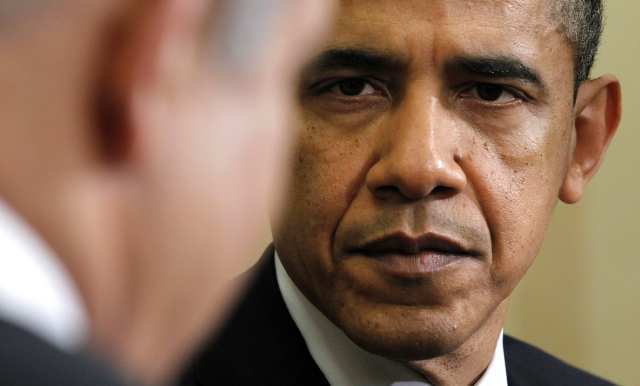 Interesting piece from Andrew Sullivan in the Sunday Times about Obama’s approach to negotiations in foreign policy hot-spot areas like Iran and Israel (here). Sullivan argues against the conventional wisdom that Obama has been unsuccessful in making progress in negotiations with these two countries, but is instead playing a “long game”. If this is true then this kind of patience is a good example of an approach which is all too often absent in modern negotiations, where participants often look too impatiently for quick wins.
Interesting piece from Andrew Sullivan in the Sunday Times about Obama’s approach to negotiations in foreign policy hot-spot areas like Iran and Israel (here). Sullivan argues against the conventional wisdom that Obama has been unsuccessful in making progress in negotiations with these two countries, but is instead playing a “long game”. If this is true then this kind of patience is a good example of an approach which is all too often absent in modern negotiations, where participants often look too impatiently for quick wins.
Iran’s regime has shown no inclination to compromise over its alleged development of nuclear weapons, and Israel has belligerently resisted efforts to force it to embrace a two state solution for Palestine or even to take a backward step in relation to building settlements in “occupied” territory. Yet Sullivan argues that Obama has simply been taking his time and allowing those who oppose him to defeat themselves rather than forcing the pace. Iran has become weaker economically as sanctions have bitten, and its currency is almost worthless. Obama has persuaded even China and Russia to impose sanctions. Sullivan argues that Religious leaders of Iran may be close to either being forced to accept international scrutiny of their nuclear power programme – or they risk being isolated internationally and presiding over an increasingly mutinous population. Israel has also become more isolated by its intransigence – its relationships with supporters like Turkey and the US have cooled significantly. It now faces the development of a non-Jewish majority in the territories it refuses to let go. The US can safely dilute its support even further as it becomes less dependent on Middle-eastern oil and more able to rely on home produced shale-energy. Soon, Israel may have no choice but to come to the negotiating table.
It may be that this reading is a “rationalisation” of the lack of discernible progress for Obama in both these difficult negotiations. But there is definitely something in the adage that sometimes the slower you go when negotiating, the faster you get to where you want to go. Business and current affairs are littered with examples of botched and hurried attempts to negotiate quick solutions or achieve big steps forward all at once, when little steps taken over time would be less risky and more effective. Think about the failed mergers between AOL and Time Warner – a giant step forward that turned into a giant disaster. Think about the as yet unrealised potential of the giant-sized co-operation between Microsoft and Nokia, announced 2 years ago. Or think about Liverpool Football Club rushing to buy striker Andy Carroll for £35 million on transfer deadline day in January 2011, only to loan him out again 18 months later. He is expected to be sold for a fraction of that purchase price at the end of this season. The affliction of trying to achieve too much too quickly can affect individuals who are negotiating as well as organisations – I have blogged before about the experience of Olympus CEO Michael Woodford who acted bravely in whistle-blowing about the Company’s alleged corruption, and was unceremoniously ejected from the company. Football manager Andre Villas Boas could be said to have “rushed” his negotiation to change tactics and formation with the seasoned Chelsea stars he inherited when he first arrived at the Club – he did not last one season.
Whether Obama’s approach to foreign policy is deliberately patient or not, it’s a good reminder that taking your time in a negotiation can be exactly the right thing to do…

